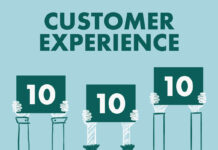In a B2B industry increasingly driven by data, selecting the right data management platform (DMP) is a critical decision that can directly impact your organisation’s efficiency, scalability, and competitiveness. Whether you’re managing customer data, marketing analytics, or enterprise-wide reporting, the right platform ensures your data is clean, accessible, secure, and actionable across departments.
But with a growing number of vendors and technologies, how can B2B companies choose a platform that meets both current and future needs? Here’s a comprehensive guide to help you evaluate and select the ideal DMP for your organisation.
1. Understand Your Data Requirements
Before evaluating platforms, clearly define your data needs:
- What types of data will you manage? (CRM, transactional, behavioral, IoT, etc.)
- Where is the data coming from? Internal tools, third-party systems, cloud storage?
- Who needs access to the data, and how often?
This step helps narrow down platforms that support your required data formats, integration needs, and user roles.
2. Key Features to Look For
Every B2B organisation has unique data goals, but the most effective data management platforms typically include:
- Data Integration Capabilities: Ability to connect with CRMs, ERPs, marketing tools, and third-party APIs.
- Scalability: Can the platform grow with your business and handle increasing data volume?
- Data Governance: Built-in tools for data privacy, compliance (e.g., GDPR, HIPAA), and access control.
- Real-Time Processing: Support for real-time analytics, alerts, and decision-making.
- User-Friendly Dashboards: Intuitive UI for both technical and non-technical users.
- AI & Automation: Features like automated data cleansing, predictive analytics, and insights.
Platforms such as Snowflake, Talend, Segment, Informatica, and Microsoft Azure Data Factory are popular among B2B organisations for their flexibility and enterprise-grade features.
3. Pricing Models and Total Cost of Ownership
DMPs can vary widely in cost, so it’s important to assess not only upfront pricing but also the long-term total cost of ownership. Consider:
- Subscription vs. usage-based pricing
- Data storage and compute costs
- Integration and customization fees
- Cost of onboarding, training, and support
Always request transparent pricing details and calculate ROI based on operational efficiency, time savings, and better decision-making outcomes.
4. Evaluate Vendor Support and Ecosystem
B2B environments are complex. Choose a platform with reliable customer support, onboarding resources, and a strong partner ecosystem. Consider:
- 24/7 technical support availability
- Community forums and documentation
- Dedicated account managers or customer success teams
- Integration with tools you’re already using
Platforms backed by active ecosystems are more likely to evolve and remain compatible with your tech stack.
5. Security, Compliance, and Trust
Handling sensitive customer and business data demands rigorous security standards. Ensure the platform complies with key regulations and includes features like:
- Role-based access control
- Data encryption at rest and in transit
- Secure APIs
- Audit logs and compliance certifications (ISO, SOC 2, etc.)
Trust and data integrity are non-negotiable for long-term success.
Conclusion
Choosing the right data management platform for your B2B organisation is not just a technical decision; it’s a strategic one. The ideal platform will empower your teams to make informed decisions, streamline operations, and scale confidently as your data grows.
By assessing your internal needs, focusing on core features, evaluating pricing and vendor support, and prioritizing compliance, you can confidently select a platform that aligns with your business goals and future-proof your data infrastructure.








